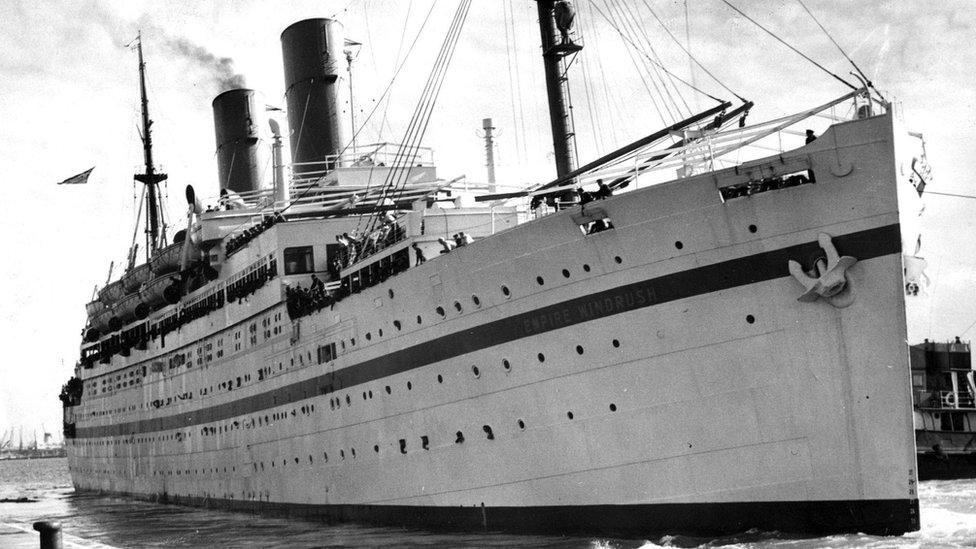Windrush Day 2021: Celebrations and storytelling
- Published
- comments

Windrush Day takes place on 22 June - A special day to remember when around 500 migrants from the Caribbean arrived at Tilbury Docks in Essex in 1948.
This year the government has announced that it will be giving ÂŁ500,000 to charities, community groups and councils across England to mark the event.
This money will be used to fund 42 projects, such as museum exhibitions, performances and programmes for schools, to help tell the story of the Windrush Generation.
Windrush: Baye's story
What is the Windrush Generation?
WATCH: Baroness Floella Benjamin tells the story of the Windrush generation
On 22 June 1948, around 500 migrants from the Caribbean arrived at Tilbury Docks in Essex, travelling thousands of miles on a big ship called the Empire Windrush.
This was the first time so many Caribbean people had come to live inâŻBritain. Many more arrived in the following years.
Britain was just starting to recover from World War Two back then. Thousands of buildings had been bombed, lots of houses had been destroyed and it all needed to be rebuilt.
In the Caribbean, lots of young men and women had served in the British armed forces because at the time, many Caribbean countries were still under British rule and not yet independent.
The Empire Windrush arriving at Tilbury Docks
After the war, some of these people answered an advert to come to Britain where there were lots of different jobs to do.âŻ
Other people just wanted to see Britain, which theyâŻhad heard so much about.
However, when they arrived many of them experienced racism and discrimination and often found it hard to get proper homes to live in and to make friends with British people.
It's been more than 70 years since the Empire Windrush sailed to Britain, and now an estimated 500,000 people live in the UK who arrived between 1948 and 1971 from Caribbean countries.
After a change in immigration law in 2012, many of them were told they lived in the UK illegally and they faced being deported (sent back to the Caribbean).
Without any official record or paperwork, many were unable to prove they had the right to live and work in the UK.
Some people were taken to immigration detention centres and some lost their jobs and homes.
The government apologised and agreed to gave compensation to people who were affected but later had to increase the amount as people said it was not enough.
WATCH: Newsround Generation meets the Windrush Generation
- Published18 October 2021
- Published28 September 2023
- Published24 November 2021
- Published2 May 2021
- Published18 June 2018
- Published18 June 2018
